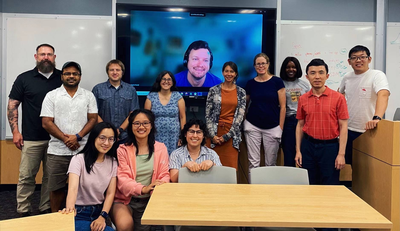Hanshi and Tong attended the working group at CU Boulder
The background of the working group: Plant phenology — the seasonal timing of leaf-out, budding, flowering, fruiting, and leaf-off — is the most easily observable and well-documented biological response to climate change. Changes in phenology have many implications for ecosystem services relevant to society (e.g., food security, carbon sequestration, seasonal allergies). Often we need to know where and when these seasonal changes in plants occur, which is challenging given their sensitivity to changes in climate. However, little is known about how plant phenology influences a species’ ability to persist in different locations in the face of climate change, how rare versus common species respond to climate, or how native vs. invasive plants may respond to climate change differently. The proposed working group (WG) will tackle these questions by combining different types of phenological data with species distribution data, which will require access to advanced computing resources. The group will use a co-production framework with Indigenous scholars to develop a research approach and products that are needed and of value to their communities. The Environmental Science Innovation and Inclusion Lab (ESIIL) is the premier location for this work given their in-house knowledge of bringing together people with diverse perspectives and top computer infrastructure.
Tong and Hanshi participated in this working group and have many fruitful discussions.
